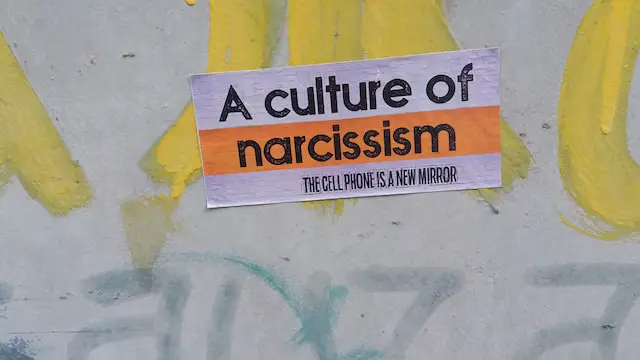Narcissism is a personality disorder characterized by a lack of empathy, a grandiose sense of self-importance, and a need for admiration. Narcissists often have difficulty forming meaningful relationships with others, as they tend to view others as objects to be used for their own purposes. When you say “I love you” to a narcissist, the reaction can be complex and varied.

One possible reaction a narcissist may have when you say “I love you” is to feel a sense of validation and power. Narcissists thrive on admiration and attention, so hearing these words can make them feel special and important. They may see your declaration of love as proof of their own superiority and may use it as a way to control and manipulate you.
Another possible reaction a narcissist may have when you say “I love you” is to feel a sense of discomfort or even anger. Narcissists often struggle with feelings of vulnerability and may see expressions of love as a threat to their carefully crafted image of themselves. They may react defensively or dismissively, belittling your feelings or changing the subject altogether.
A third possible reaction a narcissist may have when you say “I love you” is to use it as a tool to further their own agenda. Narcissists are often skilled at manipulating others and may use your love for them to get what they want, whether it’s attention, money, or something else entirely. They may also use your love as a weapon against you, threatening to withhold it or use it as a bargaining chip.
In any of these scenarios, it’s important to remember that a narcissist’s reaction to your declaration of love is not about you or your feelings, but about them and their own issues. Narcissists are often unable or unwilling to truly love others in a healthy, reciprocal way. They may see relationships as a means to an end, rather than as a source of genuine emotional connection and support.
If you find yourself in a relationship with a narcissist, it’s important to seek help and support. Narcissists can be emotionally abusive and may try to control or manipulate you in a variety of ways. It’s important to set boundaries, prioritize your own well-being, and seek professional help if necessary.
In conclusion, saying “I love you” to a narcissist can elicit a range of reactions, from validation to discomfort to manipulation. Narcissists are often unable to form healthy, reciprocal relationships with others, and may use love as a tool to further their own agenda. If you find yourself in a relationship with a narcissist, it’s important to prioritize your own well-being and seek help and support.
